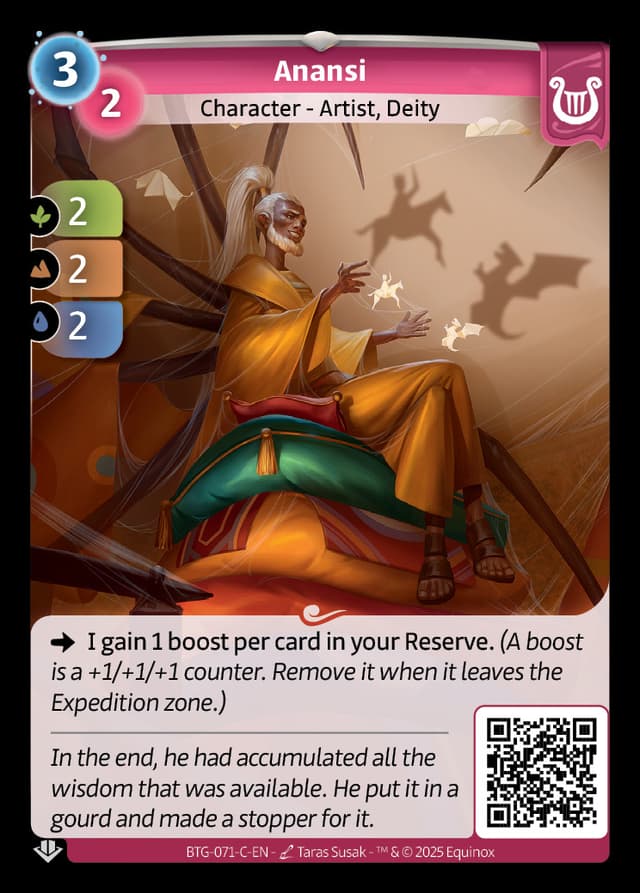Anansi


In the end, he had accumulated all the wisdom that was available. He put it in a gourd and made a stopper for it.
Story
It's no coincidence that the Lyra have always venerated the Wind. Stories travel the world on its currents, just like the ideas they convey. It's through voices and word of mouth that tales and news about the world are spread and intertwined. I don't know when the Wind first spoke to me. Maybe it was through a skald while I was listening to one of their tales by the fireside. Or perhaps it was when I sang for the first time, and it replied to me. The spoken word has always been a fundamental part of Lyra traditions, unlike the Ordis who use paper and vellum. But even if I listen carefully, I still can't hear the Song of One. I hear no melody, no verse. Enough waiting around. I summon Anansi. He appears as a simple spider, landing on my hand after drifting down on his thread.
I cajole him and flatter him, the one who claims to own all the stories. He tells me to make him a web and that he will sit in the center of it and taste everything that gets trapped by the web. Using Alteration, I weave his trap for him. With each new idea that sticks to the fine thread, he wraps it in a silken cocoon and starts to digest it. "One of old Bancu's dreams," he says. "Manea's childhood memories," he adds after that. But still no melody, no verse. Sick and tired of waiting, I turn to Anansi, who is feasting on everything we catch and simply saying each time that, no, this one's not the Song of One either. I ask him if he thinks we'll ever catch it like this one day, and he tells me it's a waste of time. That what has been forgotten can never be retrieved. I scowl at him and ask why he suggested we try this method. Before disappearing, he admits that he was hungry, and that an impossible task like this might as well be useful for something.
Inspiration
A prominent figure in West African and Caribbean folklore, Anansi is the archetypal trickster, much like Coyote in North American cultures. This mischievous character gets himself out of even the worst situations using his cunning, creativity and wit. Because of this, he often personifies the resilience of the African diaspora facing the oppression of slavery. As tales about him were passed on through oral traditions, his influence continued to grow. Like a spider, which is his symbol, he has woven a vast web and become a true cultural hero.
Narrator
Fen
Date
384 AC